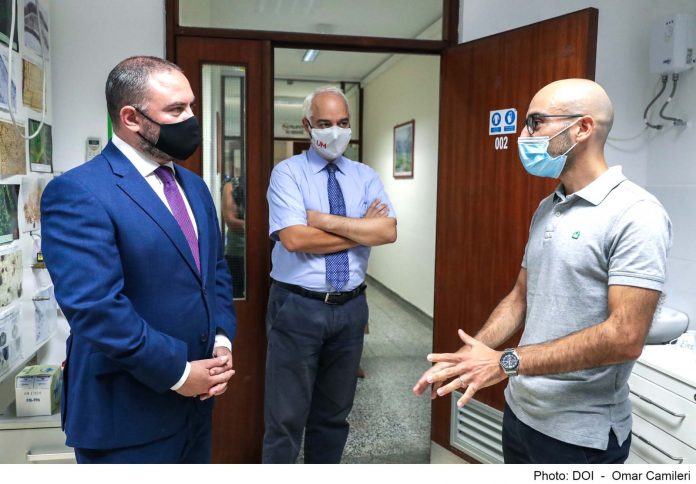Thanks to a research funding of €195,000 under the Malta Council for Science and Technology FUSION programme, scientists at the University of Malta are working on Bookind, a research project aiming to provide more effective treatment for epilepsy and a number of other neurological disorders.
The World Health Organisation estimates that approximately 50 million people worldwide live with epilepsy. In Malta, there are more than 4,000 patients living with the condition, which can cause severe health consequences and stigma, interfere with school or employment, loss of independence, social isolation, increased risk of injury, and depression.
During his visit at the BioMedical Labs where research work on the Bookind project is taking place, Minister for Equality, Research, and Innovation Owen Bonnici praised the efforts of the formidable team of researchers coordinated by Prof. Mauro Pessia, who are working tirelessly to provide new and better solutions for persons fighting these life-threatening diseases.
“This kind of research fills us with hope as it aims to concretely ameliorate the quality of life of those who are constantly being held back by their neurological or movement disorders. This is a clear demonstration of how everyone can benefit from recognising research and innovation as major pillars for our country’s future”, the minister said.
Minister Bonnici thanked Omnigene Medical Technology, a Maltese prestigious biotech company, for its remarkable contribution to the successful accomplishment of this project, and the Malta Council for Science and Technology for making this research project possible through their FUSION programme.
Currently, more than 30% of patients are resistant to existing pharmacological treatments. Prof. Mauro Pessia explained that, “Sudden unexpected death in epilepsy is the leading cause of death in people that are not rendered seizure-free by available medications. The only other option would often be neurosurgical treatment, but this is often precluded by the unacceptable risk of damaging neighbouring or overlapping brain areas responsible for language, sensation, movement, and other crucial brain functions. Therefore, the identification of more effective drugs to prevent this is urgently needed”.










